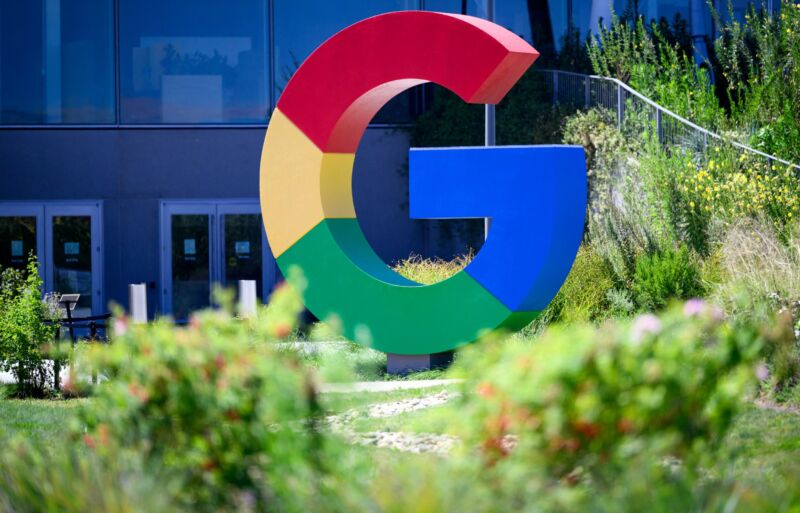
Google has agreed to fund local journalism and an artificial intelligence initiative in California as part of a deal that would reportedly result in lawmakers shelving a proposal to require Google to pay news outlets for distributing their content. But the deal’s state financing requires legislative approval as part of California’s annual budget process and is drawing criticism from some lawmakers and a union for journalists.
Governor Gavin Newsom is on board, saying that the “agreement represents a major breakthrough in ensuring the survival of newsrooms and bolstering local journalism across California—leveraging substantial tech industry resources without imposing new taxes on Californians.” The deal “will provide nearly $250 million in public and private funding over the next five years, with the majority of funding going to newsrooms,” said an announcement by Assemblymember Buffy Wicks, a Democrat.
A “News Transformation Fund” would be created with funding from the state and Google and be administered by the UC Berkeley School of Journalism. The state would contribute $30 million the first year and $10 million in each of the next four years, according to a summary provided to Ars by Wicks’ office.
Google would contribute $55 million to the news fund over five years, consisting of $15 million the first year and $10 million in each of the next four years. The funds would be distributed to news organizations based on how many journalists they employ.
Google also agreed to provide $62.5 million over five years for a “National AI Innovation Accelerator.” Wicks’ office said the accelerator “will be administered in collaboration with a private nonprofit, and will provide organizations across industries and communities—from journalism, to the environment, to racial equity and beyond—with financial resources and other support to experiment with AI to assist them in their work.”
The “nearly $250 million” figure quoted by Wicks’ office includes a commitment from Google to continue funding the company’s existing journalism programs with $10 million annually for five years.
Union calls deal a “shakedown”
The Media Guild of the West union slammed the deal as a “shakedown” in a statement issued yesterday. The agreement is disappointing partly because it came “after two years of advocacy for strong antimonopoly action to start turning around the decline of local newsrooms,” the group said.
“The publishers who claim to represent our industry are celebrating an opaque deal involving taxpayer funds, a vague AI accelerator project that could very well destroy journalism jobs, and minimal financial commitments from Google to return the wealth this monopoly has stolen from our newsrooms,” the union said. “Not a single organization representing journalists and news workers agreed to this undemocratic and secretive deal with one of the businesses destroying our industry.”
Perhaps explaining why journalism and AI funding are part of the same agreement, Wicks’ office said the AI accelerator will “complement the work of the Journalism Fund by creating new tools to help journalists access and analyze public information.”
Google recently testified against pending legislation submitted by Wicks, known as the California Journalism Preservation Act. Google said the bill would “break the foundational principles of the open Internet, forcing platforms to pay publishers for sending valuable free traffic to them, which they choose to receive.” Google has called the bill a “link tax.”
Alphabet Chief Legal Officer Kent Walker praised the deal yesterday as “a collaborative framework to accelerate AI innovation and support local and national businesses and non-profit organizations.”
State funding faces opposition in Senate
Democratic State Senator Steve Glazer, who proposed a different bill aiming to fund local journalism, issued a statement criticizing the deal. “Google’s offer is completely inadequate and massively short of matching their settlement agreement in Canada in supporting on-the-ground local news reporting,” he said.
Glazer questioned why only Google was involved in the deal announcement, and not other tech companies. “There is a stark absence in this announcement of any support for journalism from Meta and Amazon,” Glazer said. “These platforms have captured the intimate data from Californians without paying for it. Their use of that data in advertising is the harm to news outlets that this agreement should mitigate.”
Senate President Pro Tempore Mike McGuire “questioned legislative support for the state’s share of the deal,” The New York Times wrote.
“We have concerns that this proposal lacks sufficient funding for newspapers and local media, and doesn’t fully address the inequities facing the industry,” McGuire, a Democrat, was quoted as saying. McGuire said the state Senate is “pursuing a global solution that would hold all of these companies accountable.”
News organizations have reported declines in Google referrals, a trend that may be worsened by how Google’s AI Overview feature displays search results.
Wicks’ announcement of the deal quoted several supporters in the publishing industry. “This is a first step toward what we hope will become a comprehensive program to sustain local news in the long term, and we will push to see it grow in future years,” the California News Publishers Association said.
There was also a supportive quote from OpenAI Chief Strategy Officer Jason Kwon: “A strong press is a key pillar of democracy, and we’re proud to be part of this partnership to utilize AI in support of local journalism across California. This initiative builds on our longstanding work to help newsrooms and journalists around the world leverage AI to improve workflows, better connect users to quality content, and help news organizations shape the future of this emerging technology.”
OpenAI is contributing technology to the agreement, but not any money, the summary from Wicks’ office said.
https://arstechnica.com/?p=2044874

